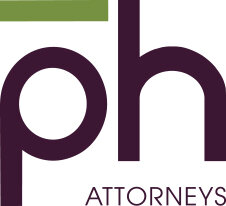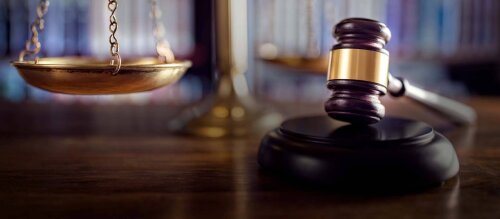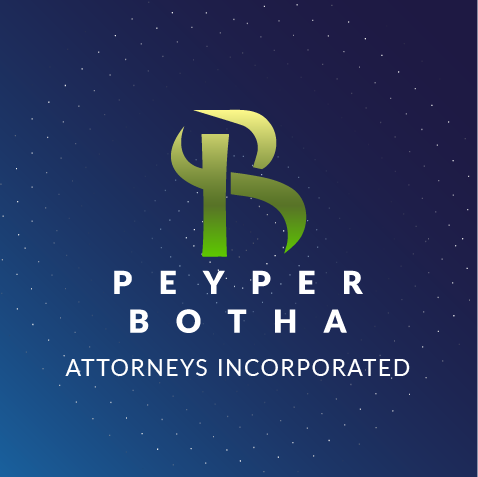Best Sexual Harassment Lawyers in Bloemfontein
Share your needs with us, get contacted by law firms.
Free. Takes 2 min.
List of the best lawyers in Bloemfontein, South Africa
About Sexual Harassment Law in Bloemfontein, South Africa
Sexual harassment is a form of unfair discrimination that is prohibited under South African law. In Bloemfontein, as in the rest of the country, it is taken very seriously, especially in workplaces, schools, and public spaces. The law defines sexual harassment as any unwelcome conduct of a sexual nature, directly or indirectly, that violates the dignity of an individual. This can include unwelcome sexual advances, comments, touching, gestures, or any behavior that creates a hostile or intimidating environment. South Africa’s Constitution, the Employment Equity Act, and related laws provide protection and remedy for victims of sexual harassment.
Why You May Need a Lawyer
Individuals facing sexual harassment may benefit from professional legal support for several reasons. You may need a lawyer if:
- You are a victim of sexual harassment in the workplace, at school, or in public spaces and want to understand your rights.
- You have reported sexual harassment, but your employer, school, or authority has not taken appropriate action.
- You are facing retaliation or victimisation after reporting harassment.
- A complaint has been filed against you, and you need to respond appropriately.
- You are uncertain about how to gather evidence or document your case effectively.
- You seek compensation or protection orders against the harasser.
Local Laws Overview
Bloemfontein, as part of South Africa, is governed by national laws on sexual harassment. The most relevant statutes and frameworks include:
- Employment Equity Act (EEA): Prohibits sexual harassment in the workplace and requires employers to have appropriate procedures for handling complaints.
- Labour Relations Act: Provides for dispute resolution through the Commission for Conciliation, Mediation and Arbitration (CCMA).
- Protection from Harassment Act: Allows individuals to apply for protection orders against harassment in both public and private life.
- Constitution of South Africa: Guarantees equality, dignity, and the right to a safe and secure environment.
Frequently Asked Questions
What qualifies as sexual harassment?
Sexual harassment includes any unwelcome sexual advance, request for sexual favors, or other unwelcome conduct of a sexual nature that makes the recipient feel uncomfortable, intimidated, or violated.
Does sexual harassment only occur at work?
No. While workplaces are common locations, sexual harassment can occur at schools, universities, public places, or even private settings.
Who can be held responsible for sexual harassment?
Both individuals (such as an employer, colleague, teacher, or peer) and institutions (for not preventing or addressing the harassment) can be held legally responsible.
What should I do if I am sexually harassed?
If you experience sexual harassment, document the incidents in detail, report the matter to the relevant authority (employer, school, or police), and seek support from a legal professional or counselor.
How long do I have to file a complaint?
It is advisable to report sexual harassment as soon as possible. For workplace cases, complaints to the CCMA should typically be filed within six months of the incident, but exceptions may be made in some cases.
Can I be dismissed for reporting sexual harassment?
No. South African law prohibits employer retaliation or victimisation of employees who report sexual harassment. Unfair dismissal in such cases can be legally challenged.
What evidence do I need to prove sexual harassment?
Evidence can include emails, messages, witness statements, recordings, and a diary of incidents. A lawyer can help you compile and present your evidence effectively.
Can men be victims of sexual harassment?
Yes. While women are most commonly victims, men and people of any gender can also experience sexual harassment.
What if the harassment continues after reporting?
If your complaint does not result in effective action, you can escalate the matter to higher authorities such as the CCMA, Equality Court, or apply for a protection order under the Protection from Harassment Act.
Are there free legal resources for victims of sexual harassment?
Yes. There are several non-profit organizations and government bodies that offer free advice and support, as listed below.
Additional Resources
If you are looking for help or further information on sexual harassment in Bloemfontein, consider contacting:
- Commission for Conciliation, Mediation and Arbitration (CCMA): Assists with workplace disputes, including sexual harassment.
- South African Human Rights Commission: Protects constitutional rights and can intervene in discrimination cases.
- Equality Court (Magistrate’s Court): Hears matters on unfair discrimination and harassment.
- Legal Aid South Africa: Provides advice and representation to those who cannot afford a lawyer.
- Women’s Legal Centre: Specialises in legal advocacy for women’s rights.
- South African Police Service (SAPS): For criminal complaints related to sexual harassment and immediate safety concerns.
- LifeLine or Rape Crisis Centres: Offer counselling and support for survivors of sexual violence or harassment.
Next Steps
If you believe you have experienced sexual harassment, or if a complaint has been made against you, consider taking the following actions:
- Record all incidents and gather any supporting evidence.
- Report the incident to the appropriate authority-such as your employer’s HR department, school management, or the police.
- Consult with a lawyer who is experienced in handling sexual harassment cases to understand your options and legal rights.
- If you are unable to afford private legal services, contact Legal Aid South Africa or relevant NGOs for assistance.
- Seek emotional support from a counselor, psychologist, or support group.
- Do not ignore retaliation or victimisation; these are unlawful and should also be reported.
Lawzana helps you find the best lawyers and law firms in Bloemfontein through a curated and pre-screened list of qualified legal professionals. Our platform offers rankings and detailed profiles of attorneys and law firms, allowing you to compare based on practice areas, including Sexual Harassment, experience, and client feedback.
Each profile includes a description of the firm's areas of practice, client reviews, team members and partners, year of establishment, spoken languages, office locations, contact information, social media presence, and any published articles or resources. Most firms on our platform speak English and are experienced in both local and international legal matters.
Get a quote from top-rated law firms in Bloemfontein, South Africa — quickly, securely, and without unnecessary hassle.
Disclaimer:
The information provided on this page is for general informational purposes only and does not constitute legal advice. While we strive to ensure the accuracy and relevance of the content, legal information may change over time, and interpretations of the law can vary. You should always consult with a qualified legal professional for advice specific to your situation.
We disclaim all liability for actions taken or not taken based on the content of this page. If you believe any information is incorrect or outdated, please contact us, and we will review and update it where appropriate.












